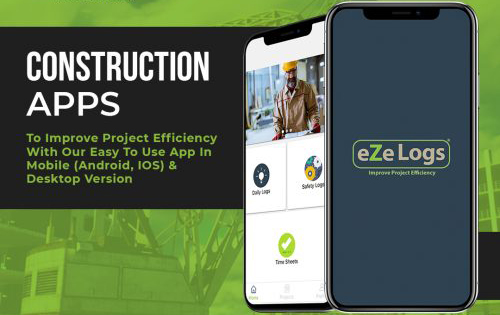General contracts are legally binding agreements between two or more parties that specify the conditions and scope of a construction project. They outline the timeline, budget, and roles and responsibilities for each party involved.

A well-drafted general contract is essential for managing risk and guaranteeing the successful completion of a construction project. It serves as the blueprint for the undertaking, offering an organized system for managing change orders, scope changes, and timelines.
This article will examine the purpose and components of a general contract, how to draft one comprehensively, the legal ramifications of having such an agreement, and its advantages.
What Is the Purpose of a General Contract?
General contracts are created to safeguard the interests of all parties involved in a construction project. They clearly define each party’s expectations and duties, providing an organized framework for managing risks.
A well-crafted general contract clearly outlines the scope of work for a project, including what tasks will be performed, who will carry them out and when it’s due.
A general contract outlines the roles and responsibilities of all parties involved in a construction project, such as the owner, general contractor, subcontractors, and suppliers. Furthermore, it establishes the timeline and budget for the endeavor as well as outlining payment schedules in case of delays or budget overruns.
A well-drafted general contract guarantees the construction project complies with all relevant legal and regulatory requirements.
Key Elements of a General Contract
Scope of Work
The scope of work specifies the tasks to be carried out, who will do them, and when they’ll be finished.
Project Timeline
The project timeline lays out a schedule for construction, including start and completion dates for each phase.
Budget
The budget provides the estimated cost of the project and payment schedule.
Payment Terms
The payment terms set the payment schedule for a project and outline the repercussions of late payments.
Change Order Procedures
A change order procedure outlines the steps involved in altering a project’s scope or budget.
Insurance and Liability
Insurance and liability clauses outline the insurance requirements for the project and each party’s responsibilities in case of an accident or other incident.
Dispute Resolution
This chapter outlines the process for settling disputes between parties involved in a construction project.
Constructing a Comprehensive General Contract
Consulting With Legal Counsel
When crafting a general contract, it is imperative to seek legal advice. An experienced attorney can review the document to guarantee its legal binding status and protect all parties involved. Furthermore, legal counsel may identify potential legal problems and guarantee that it abides by applicable laws and regulations.
Determining Project Specific Requirements
Every construction project is different, and the general contract should reflect those specifics. This includes defining the scope of work, budget, timeline, payment terms, insurance needs and dispute resolution procedures. Be as detailed and specific as possible when outlining project requirements to minimize disputes or misunderstandings.
Incorporating Industry- Standard Clauses
When crafting a general contract for construction projects, it’s important to include industry-standard clauses that address common concerns that arise along the way. These could include change orders, delays, termination, indemnification and insurance requirements – all of which help minimize disputes and ensure all parties involved in the venture are safeguarded.
Negotiating Terms with All Parties Included
After drafting the initial contract, it’s essential to negotiate its details with all parties involved – such as the owner, general contractor, subcontractors and suppliers – in order to guarantee everyone’s satisfaction with the arrangement and protect their interests. By doing this you will help guarantee everyone is in agreement with the contract’s provisions and that everyone’s needs are taken into consideration.
Reviewing and Finalizing the Contract
Once all parties have agreed on the terms of the contract, it is essential to review and finalize it. This includes getting all required signatures on board as well as making sure the document is dated correctly and executed successfully.
Legal Implications of a General Contract in Construction
Enforceability of the Contract
A general contract is a legally binding agreement that must meet certain legal criteria to be enforced. To be valid, it must be in writing, signed by all parties involved, and contain certain essential elements like an offer, acceptance, consideration and meeting of minds.
Breach of Contract
If one party involved in the construction project breaches the contract, there could be legal repercussions. These can include damages, termination of the agreement and even litigation.
Liability for Non-performance
If one party in a construction project fails to fulfill their obligations under the contract, they may be held liable. Damages, termination of the contract, and even litigation could ensue as retribution.
The Importance of Adhering to Contract Terms
It is essential for all parties involved in a construction project to abide by the terms of their contract. Failure to do so may lead to legal repercussions such as damages, termination of the agreement, or even litigation.
Benefits of Having a General Contract
Minimizing Risks and Disputations
A well-crafted general contract can help minimize risks and disputes during a construction project. It provides an efficient framework for handling potential issues like change orders, delays, or budget overruns.
Assuring project completion on time and within budget
A general contract outlines a timeline and budget for the construction project, helping guarantee its timely completion while staying within budget.

Securing the Financial Interests of All Parties
A general contract outlines a payment schedule and any consequences that arise due to late payments or budget overruns, safeguarding all parties financially in the construction project.
Establishing a Clear Framework for Handling Change Orders and Project Scope
A general contract provides an organized system for managing change orders and project scope, so all parties involved are on the same page with regards to what expectations there are for the venture. This guarantees everyone’s understanding of expectations throughout the duration of the project.
The Bottom line
A well-drafted general contract is essential for managing risk and guaranteeing the successful completion of a construction project. It acts as the blueprint for the undertaking, offering an organized framework to manage change orders, scope changes, and timelines effectively.
Finally, let me offer my final thoughts regarding the advantages of having a well-drafted general contract in place.
A well-drafted general contract can offer numerous advantages, such as minimizing risks and disputes, guaranteeing project completion on schedule and within budget, safeguarding the financial interests of all parties involved, and creating a clear framework for managing change orders and project scope.
Construction projects become more intricate and expensive, so it is essential to consult with legal counsel and create a detailed general contract. Doing so will help guarantee the successful completion of your project while reducing risks and disputes.


